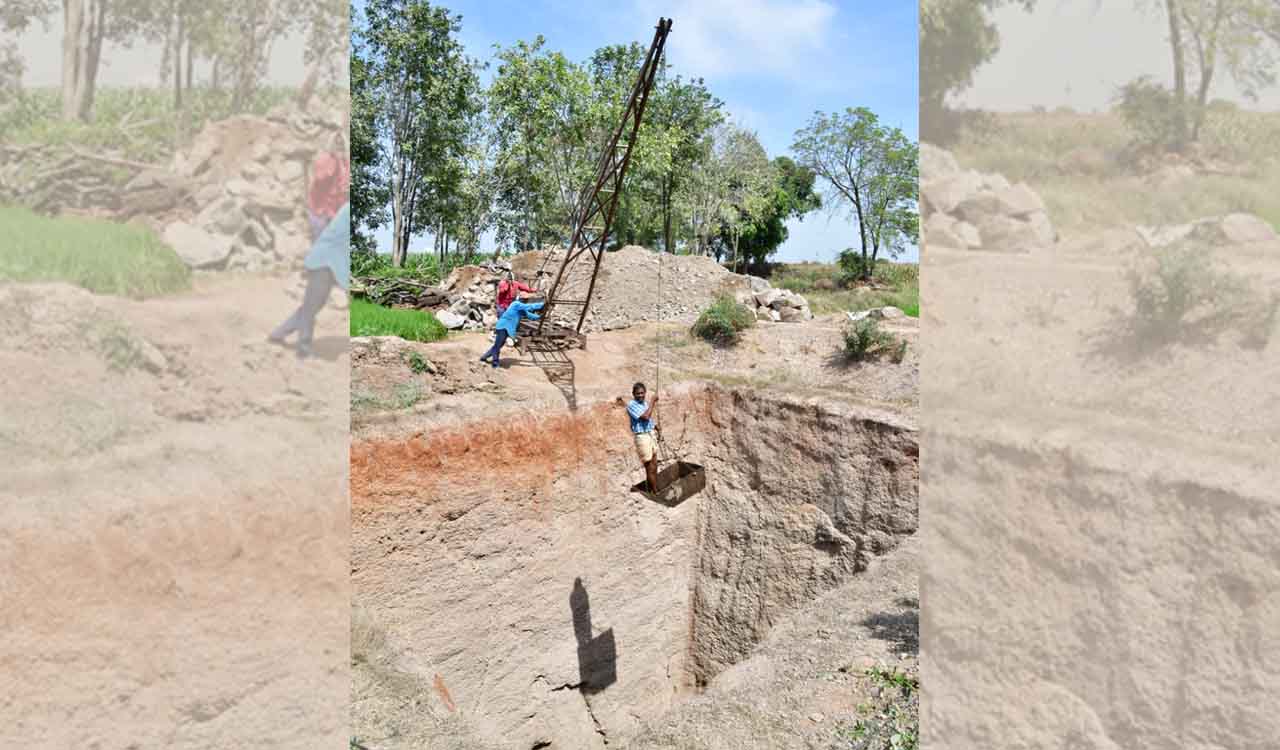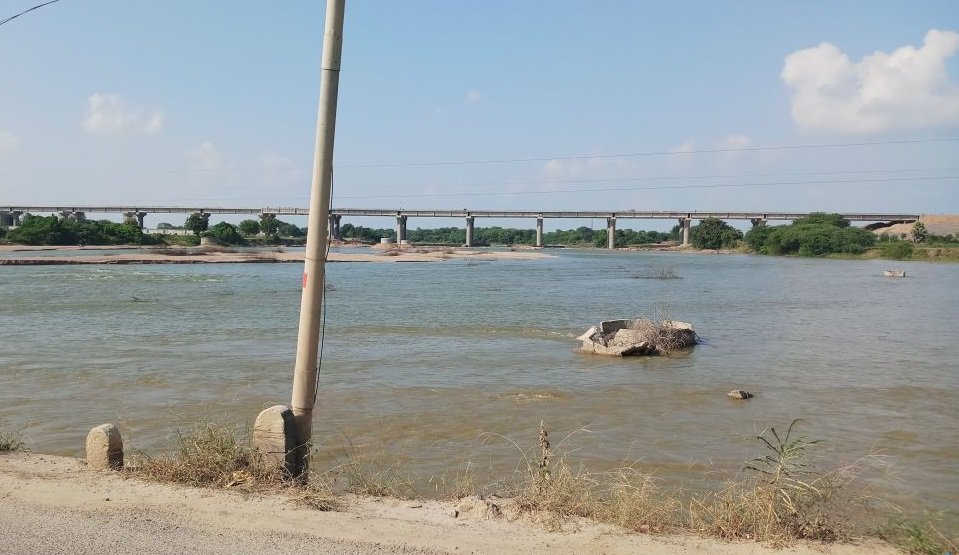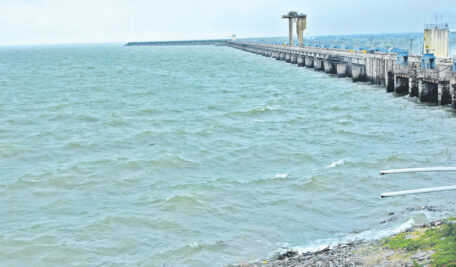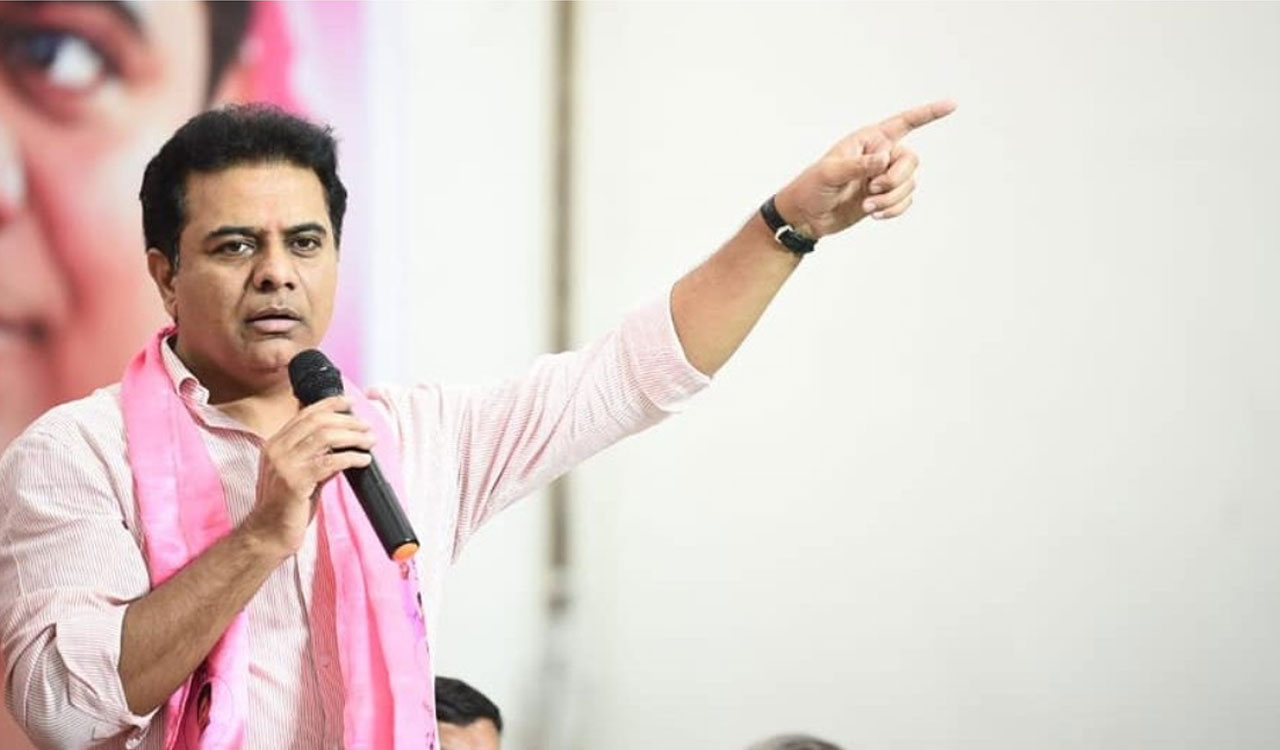Telangana faces man-made water crisis; farmers forced to abandon Rabi crop
Dwindling irrigation support, poor water resource management, erratic power supply, lack of capital support, scarcity of fertilizers leave farmers in despair

Hyderabad: Despite experiencing a year of adequate rainfall, Telangana’s agricultural sector is facing a severe crisis, triggering a distressing rise in farmer suicides.
The previous year, marked by deficient rainfall and poor inflows into major rivers, had led to crop holidays and financial strain on farmers. This year, although rainfall and river inflows were sufficient, the agrarian situation remains dire, primarily due to mismanagement of available resources. The crisis can be attributed to multiple factors, including dwindling irrigation support, poor water resource management, erratic power supply, lack of capital support, and scarcity of fertilizers.
The State government’s failure to ensure remunerative prices and timely procurement has also left farmers in despair. The sudden rise in cost of agricultural operations and inadequate investment support further added to the travails of the peasant community.
The farming community in the State is facing a man-made crisis, with many farmers pushed to the brink. The State-level Committee for Integrated Water Planning and Management (SCIWAM) had planned to extend irrigation support to nearly 43 lakh acres during the Rabi season (2024-25). But at least half of it did not get full-fledged irrigation support. The Irrigation Department had planned to make 350 TMC of water available to the Yasangi command under major and medium irrigation projects in both the Krishna and Godavari basins. The department had planned to source it from major irrigation projects to support Rabi in 30 lakh acres.
They planned to extend irrigation under medium irrigation projects to 2.9 lakh acres, minor irrigation projects to 7.2 lakh acres, lift Scheme of the IDC to 1 lakh acres. But all its plans were upset with the Kaleshwaram Lift Irrigation Scheme being left abandoned for the second consecutive year.
Rabi operations that commenced in mid-December will last till mid-April. Before the closing of the irrigation canals for the season, tanks should be filled to support the drinking water supply for the rest of the summer. The State has to sustain irrigation support for nearly another 45 days before ensuring the final wetting for crops. But the crucial wetting seems uncertain under major projects, their storage levels fast depleting.
The SRSP is left with only 31 TMC as its present storage as against a gross storage of 90.31 TMC while the Sripada Yellampalli project has only 12.98 TMC as against the gross storage of 20.18 TMC. The project is expected to retain up to 15 TMC to meet drinking water needs.
In the Krishna basin, both the Srisailam and Nagarjuna Sagar projects have been left with 74 TMC and 163 TMC respectively. But the net drawable water above their minimum draw down level is hardly 60 TMC to be shared by both Telugu States. This raises serious concerns about the fate of the Rabi crop in Telangana.
The State has a cultivable (Rabi) command of 27,67 lakh acres under 30 odd major and medium projects including Sriramsagar (Stage I and Stage II), Nizam Sagar, Kaddam, Jurala, Srisailam, NSP and AMR projects. This includes about 15 lakh acres of paddy – a sizable segment of it being under the SRSP while the NSP comes next with 6.4 lakh acres of ayacut.
The worst hit is the Rabi command under the SRSP Stage II. The project is expected to extend irrigation support to 4,40,000 acres in drought-prone areas of Nalgonda, Suryapet, Khammam, Mahabubabad and Warangal utilising about 24.405 TMC of surface water in conjunction with 4.70 TMC of groundwater.
The current situation is such that Rabi paddy being raised by farmers investing huge amounts is being abandoned in a big way for lack of irrigation water support. Nearly 60,000 acres of Rabi paddy was already abandoned and left for cattle grazing in Thungathurthy Assembly constituency. Farmers in Suryapet and Kodad areas expected adequate support from the SRSP for Rabi this year hoping that Irrigation Minister N Uttam Kumar Reddy, being district minister, would help end their travails. But here too, crops are withering.
Related News
-
Several Telangana districts face irrigation crisis as 29 projects receive no big monsoon inflows yet
-
Telangana: Gummadi Narsaiah seeks water for Yellandu on priority
-
SLBC tunnel collapse: A tragedy marked by mismanagement, missed opportunities
-
KTR slams Congress over farmers plight; calls BJP Telangana leaders Revanth’s personal staff
-
Businessman shot dead near cinema hall in Dehradun, third murder in 11 days
9 mins ago -
Man beaten to death for objecting to urinate near home in Prayagraj
19 mins ago -
PM Modi shifts to Seva Teerth office from South Block in New Delhi
26 mins ago -
Railways deactivate 3.03 crore fake user IDs to curb ticket fraud: Vaishnaw
45 mins ago -
Jagapathi Babu unveiled as Prabhakar in Abhishek Nama’s ‘Nagabandham’
47 mins ago -
Woman leaves home with toddler after dispute over smartphone
55 mins ago -
Cafe Niloufer opens Niloufer Chath rooftop restaurant in Banjara Hills
59 mins ago -
TGSRTC pushes green transition, targets 2,800 e-buses in by 2027
1 hour ago




